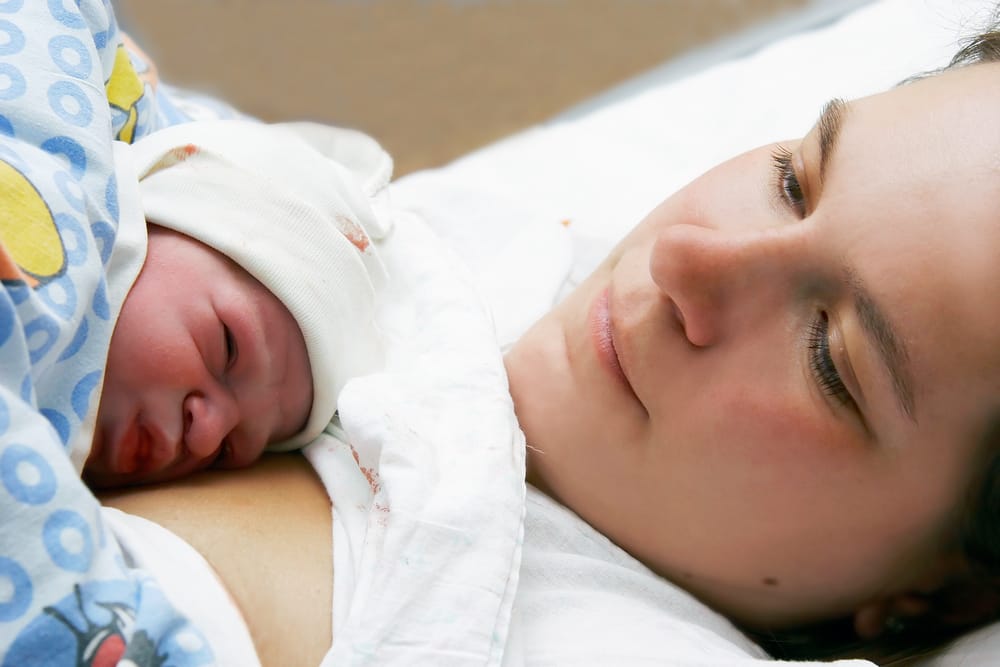Contents:
- Medical Video: Congenital Heart Disease and Pregnancy | Cincinnati Children's
- Being a mother when a teenager has a greater risk of heart disease
- The risk of heart disease is also influenced by social pressure
- So, what can be done?
Medical Video: Congenital Heart Disease and Pregnancy | Cincinnati Children's
Undergoing pregnancy at any age together causes stress to the body. Starting from drastic weight gain, hair loss, back pain, and a handful of other complaints quite often felt by pregnant women. However, if you are still a teenager and are currently pregnant, you may face greater challenges. Recent research has found that young mothers are more at risk for heart disease. How can? Continue reading the following reviews.
Being a mother when a teenager has a greater risk of heart disease
According to Catherine Pirkle, PhD, an assistant professor from the University of Hawaii in Manoa, Honolulu, allowing teenagers to undergo the process of pregnancy until delivery should be avoided as early as possible. This is based on research conducted using data from 1,047 women aged 65 to 74 years taken from the International Mobility in Aging Study (IMIAS) in 2012.
After obtaining information about each woman's first gestational age, the researchers used the Framingham Risk Score (FRS) method which consisted of a blood test and a blood pressure test. This method is used to estimate the risk of heart disease in the next 10 years.
The results showed that women who underwent their first pregnancy before the age of 20 turned out to score higher on FRS. That is, they have a greater risk of heart disease than women who become mothers at an older age (over 20 years).
Researchers consider the results of this study to be relatively strong and accurate. Because the participants in the study came from five very different locations so that the level of validity was considered high. Therefore, this further reinforces that women who have become mothers before the age of 20 are more at risk of developing heart disease in the future.
The risk of heart disease is also influenced by social pressure
According to data from the Centers for Disease Control (CDC) in the United States in 2015, 229,715 babies were born to women aged 15 to 19 years. Even though it has continued to decline in recent years, this figure still seems high and prevention should be sought.
Because the pregnancy during adolescence tends to cause bad social impacts. A teenager who has become a mother mostly has to experience dropping out of school to take care of her baby, because it was issued by the school, or because of embarrassment from other people's comments. In addition, the opportunity to work is also lower. Not to mention the factor of marriage in adolescence (if married) which increasingly adds to the psychological burden of young mothers.
Women who give birth first before the age of 20 tend to have unhealthy lifestyles such as smoking, unhealthy eating patterns, and lack of exercise. This is why they are more at risk of being overweight, hypertension, and diabetes than women who give birth over the age of 20 years. As a result, the risk of getting heart disease increases.
Not only on the side of his mother, the fetus was also affected. A teenager who runs a pregnancy is at risk of giving birth prematurely, low birth weight, and experiencing other baby development problems.
So, what can be done?
Based on the research, Catherine Pirkle recommends that teens do not undergo pregnancy at a young age. This is why sex education and family planning are needed to equip teenagers in terms of mental and social aspects.
Regardless of the various causes of pregnancy in adolescents, they need to be provided with knowledge of the various risks that might occur. For example the possibility of being exposed to obesity, hypertension, high cholesterol, diabetes, and smoking. By avoiding these various risk factors, it is expected to prevent teenagers from risking heart disease in the future.
Pregnant women are highly recommended to stop smoking, control weight with exercise, and regulate a healthy diet to maintain pregnancy. In addition, it is also important for pregnant women - especially those in their teens - to check pregnancy regularly. This is useful to anticipate the risk of heart disease or other health problems in pregnant women and fetuses.













